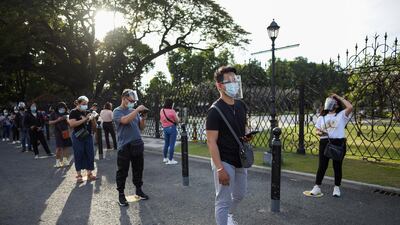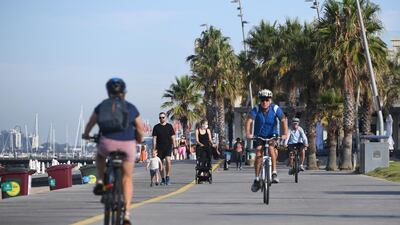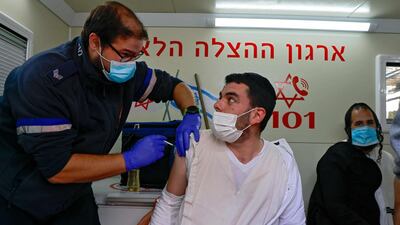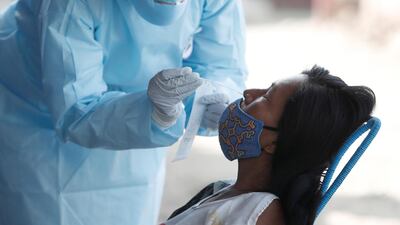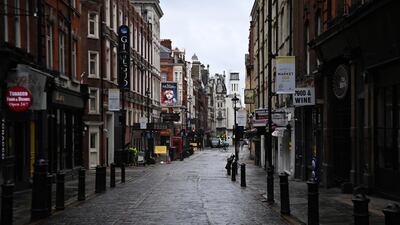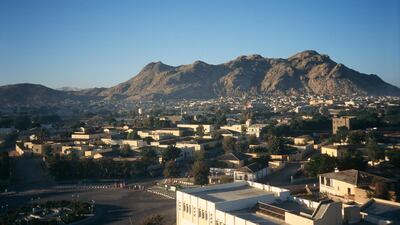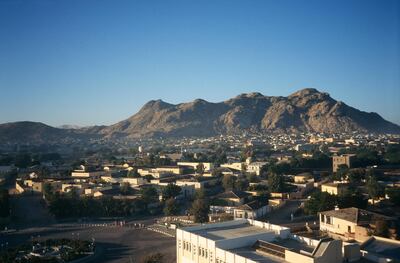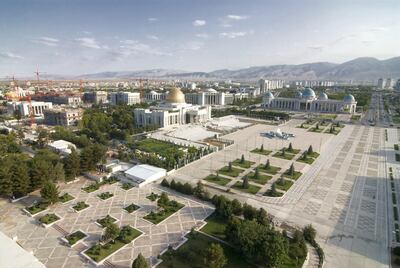Most of the world was placed under lockdown last year at some point to stem the rapid spread of Covid-19.
But the open-close cycle has since been repeated in a number of countries to combat surging cases.
England and Israel, faced with exponential growth of Covid-19 variants, have been subject to lockdowns in recent weeks, but are beginning to see a way out.
In other countries, however, strict restrictions remain.
The National outlines where some of the toughest lockdowns are in the world right now.
1. Eritrea
People in Eritrea are living under some of the world’s strictest coronavirus restrictions, according to the Government Response Stringency Index developed at Oxford University.
The small African country, in the north-east of the continent, has been under total lockdown since April 1 last year.
All public transport has ceased, and in late December the country banned the use of private cars and “other individual means of transportation” without a permit. Schools are closed and no one is allowed to leave their village or city to travel elsewhere in the country.
In addition, all businesses are closed except those offering essential “trade services”, which must shut by 8pm each day. Even the state newspaper has ceased to operate.
All borders remain closed. Police and neighbourhood watch groups enforce the rules, and residents have been warned additional restrictions are possible.
The country has registered 2,703 cases since the start of the pandemic, with seven deaths. On Monday, there were 18 new confirmed infections.
2. Turkmenistan
Turkmenistan is a particularly curious case.
Professing to be virus-free – it has never officially recorded a case – it practically banned the use of the word coronavirus early on in the pandemic and arrested people found to be wearing masks.
But a strict lockdown was imposed in July after a World Health Organisation team visited and advised the country to “act as if the virus was circulating”.
It is not clear when it was lifted but Turkmenistan is in lockdown again, with restrictions extended until the end of February.
They include the closure of all land borders, suspension of international flights, and travel restrictions that include mandatory 14-day quarantine for all domestic arrivals, rising to 21 days for the handful of those able to enter from abroad.
Rail and bus services are suspended and special permits are required to travel within or between provinces.
Shopping malls, entertainment venues, leisure and sports facilities, cultural venues and houses of worship have been closed indefinitely, according to security company GardaWorld.
Restaurants and cafes can open for deliveries only. Schools are allowed to open, provided they follow strict safety rules.
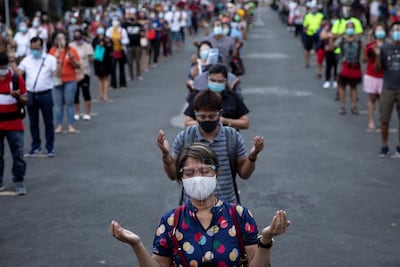
3. The Philippines
Restrictions in the Philippines are still tough. Parts of the country remain under lockdown and officials say controls will not be lifted in some areas for the foreseeable future.
The Cordillera Administrative Region in the northern Philippines was placed under a “general community quarantine” in February, joining Metro Manila and other regions with high rates of infection.
Lockdowns have been eased in other areas but restrictions remain.
Schools in the country remained closed for most of last year and have yet to open despite appeals from Unicef citing the harm to pupils.
Children are not only prevented from attending school – they cannot leave their homes.
Almost a year ago, a rule was introduced requiring an estimated 32 million Filipinos under the age of 15, a third of the total population, to stay in their homes at all times. It remains in place today.
The rule is intended to protect the old and vulnerable, who often live with younger relatives.
Only a fraction – less than a tenth – of those over 60 live alone. A higher proportion live with their grandchildren but not their children, who are often working elsewhere.
The Philippines has registered more than 564,000 cases and about 12,000 deaths. There were 2,283 new cases on Monday, despite limited testing.
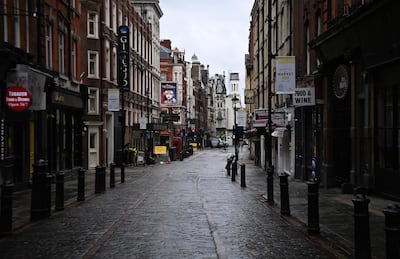
4. UK
The UK’s four nations have taken different approaches to managing the spread of the virus but restrictions have generally been strict.
England entered its second lockdown in early November amid warnings its public health service was weeks away from being overwhelmed.
That triggered a stay-at-home order and the closure of all non-essential shops. Most people continue to work from home and schools remain closed.
People are permitted to leave their homes to exercise outdoors alone, or with one other person outside their household. This should be limited to once a day only and performed locally.
The surge in infections was partly due to the emergence of a virus variant that has been proven to be more transmissible and deadly than earlier ones.
This week, Prime Minister Boris Johnson unveiled a plan to ease the lockdown in England by June 21, if “strict conditions” are met.
The devolved nations of Wales, Scotland and Northern Ireland are also under lockdown, with similar restrictions.
The UK has registered one of the highest confirmed rates of infections and deaths in the world. More than 4.1 million cases including more than 120,000 deaths were reported since the start of the pandemic. The seven-day average of deaths stands at 480.
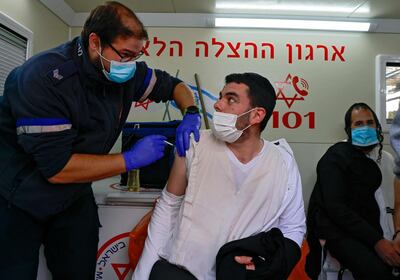
5. Israel
The most vaccinated country in the world has also, at times, reported the most new infections per capita.
Cases surged to more than 10,000 per day in January, in a country of about 10 million, a population similar in size to the UAE’s .
The high rate of infections led the country to impose three lockdowns, with the most recent announced in late December, when the UK variant was detected.
It barred people from travelling farther than one kilometre from their homes, with few exceptions. All shops, except those selling necessities, were closed, as were guesthouses, zoos, nature reserves, parks and other public places.
Schools remained open for most pupils.
The country has begun to lift some restrictions.
Street-front shops, malls, markets, museums and libraries opened to all Israelis on Sunday.
People who had either been vaccinated or recovered from Covid-19 are now able to enter gyms, sports and cultural venues, hotels and swimming pools.
Almost half of Israeli residents have received at least one dose of the Pfizer-BioNTech vaccine, which has been shown to be 98 per cent effective at preventing fever or breathing problems, according to the country’s health ministry.
Within the next two weeks, it is expected that almost all Israelis over the age of 50 will have been immunised.
The country has recorded more than 750,000 cases in total, including about 5,600 deaths. On Monday, it registered almost 5,000 new cases.
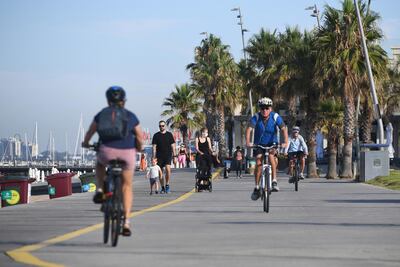
6. Australia
Australia has imposed some of the world’s most stringent Covid-19 restrictions, locking down the city of Melbourne for 112 days to stem an outbreak during the country’s second wave of the virus.
At one stage, cases in the state of Victoria, which has a population of 6.4 million people, surged to more than 700 a day.
The state entered a snap four-day lockdown this month to suppress an outbreak caused by the UK variant of the virus. The cases were linked to a worker at a quarantine centre.
It was the third lockdown in the city. The first, in autumn, confined people to their homes, restricted travel and closed shops and restaurants.
Australia has registered about 29,000 cases and 909 deaths since the start of the pandemic. On Tuesday, it announced seven new cases.
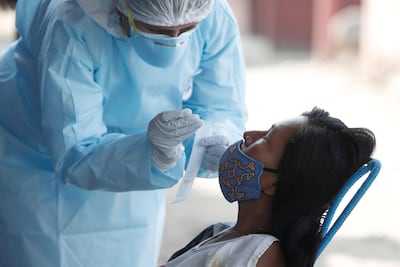
7. Peru
The country entered a 15-day lockdown recently in nine regions, including the capital Lima, to tackle a second wave of cases.
People were only allowed to leave home to buy essentials and everyone was advised to work from home if they could.
Restaurants were only allowed to accept takeout orders, and non-essential businesses were closed.
A curfew was also imposed from 8pm to 4am, with restrictions on private vehicles in place at the weekends.
It emerged from the lockdown on February 14.
The country recorded close to 1.3 million cases and about 45,000 deaths. On Tuesday, it announced 3,448 cases and 166 deaths.

